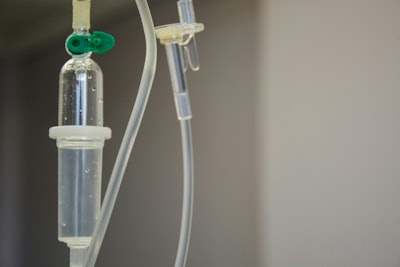
Three Tufts University men’s lacrosse players remained hospitalized this week after a 45-minute workout with a Navy SEAL graduate left them with rhabdomyolysis — a rare, life-threatening breakdown of muscle tissue due to extreme exertion.
As reported Tuesday by CNN, the voluntary, supervised workout Sept. 16 was instructed by a Tufts alum who is a “recent graduate of the BUD/S Navy SEAL training program,” which stands for Basic Underwater Demolition/SEAL training, according to Patrick Collins, executive director of media relations for the university.
“Approximately 50 team members participated in the workout. All have been evaluated by medical professionals, with a total of nine requiring hospitalization for rhabdomyolysis (rhabdo),” Collins said in an updated statement Monday, according to CNN's Michelle Watson. “Three remain hospitalized.”
Related: HS Coach Under Investigation After Multiple Athletes Suffer Rhabdo
In cases of rhabdo, the broken-down muscle fibers can contain large amounts of elements such as potassium and phosphate that can be released into the bloodstream, causing complications with the kidneys, according to the Cleveland Clinic.
“The most common symptoms are feeling like prolonged kind of muscle stiffness and discomfort and weakness,” Dr. Shruti Gupta, an associate physician at Brigham and Women’s Hospital who specializes in kidney disease, told CNN affiliate WCVB. “Usually we see these cases more in isolation and so it’s puzzling for it to happen in particularly … people who are athletes."
Related: U. of Houston Sets Policies in Wake of Rhabdo Cases
Following the workout and hospitalizations, Tufts University postponed team practice and appointed an external independent investigator to review what happened.
“The university continues to closely monitor the condition of the team, and some individual team members have been medically cleared to resume training,” Collins said. “The team is a tight-knit group of young men who have shown remarkable resilience, understanding and care for each other throughout this episode. We will continue to monitor and work with them closely, and we hope for a rapid return to good health for all involved.”





































